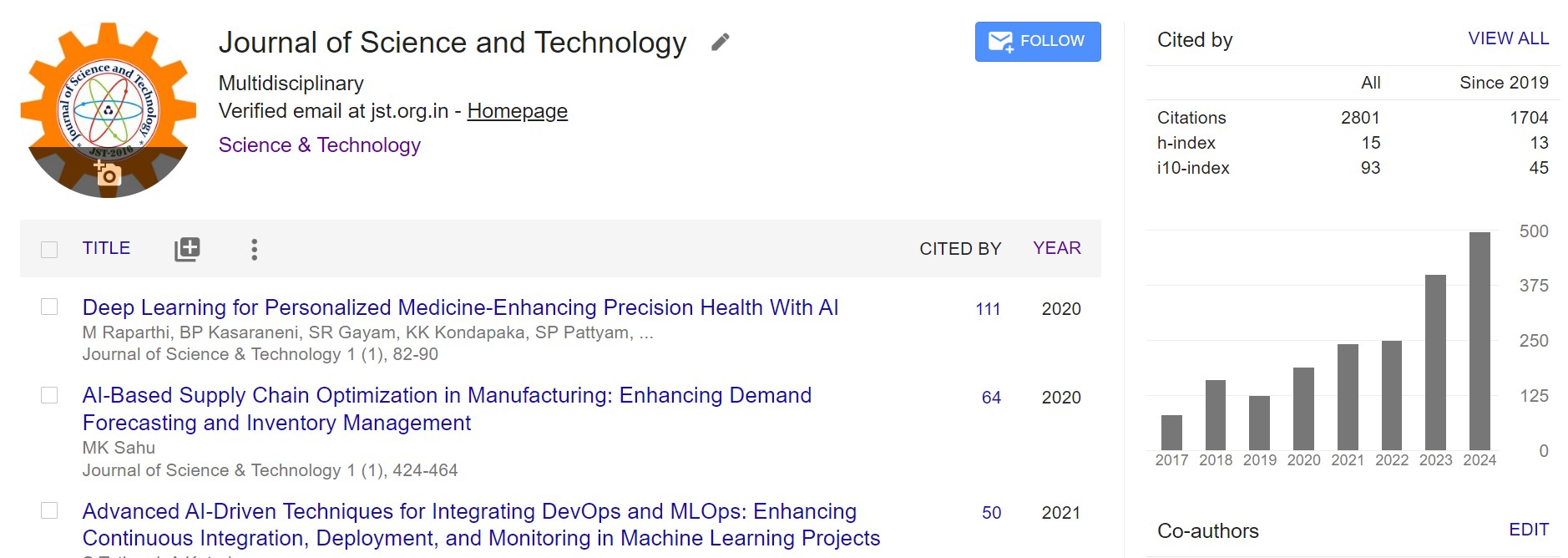Inviting Applications for Editorial Board Membership
Greetings from the Journal of Science and Technology
We are pleased to announce that the Journal of Science and Technology (JST) is currently inviting qualified researchers, academics, and professionals to join our Editorial Board.
As a peer-reviewed, interdisciplinary journal committed to advancing knowledge in all areas of science and technology, JST is seeking individuals with strong academic backgrounds, research expertise, and a passion for scholarly communication.
We are looking for:
Established researchers with a Ph.D. in a relevant field
Proven publication and peer review experience
Commitment to uphold ethical standards in scholarly publishing
Willingness to contribute to editorial decisions and journal development
Responsibilities include:
Reviewing submitted manuscripts
Assisting in maintaining the journal’s academic quality
Promoting the journal in your professional network
Advising on journal policies and special issues.
How to Apply:
Please submit your CV, list of publications, and a brief statement of interest to:
[editor.jst@gmail.com, editor@jst.org.in]
Join us in shaping the future of scientific publishing and innovation!
Sincerely,
Editorial Office
Journal of Science and Technology
Journal URL: https://jst.org.in





















